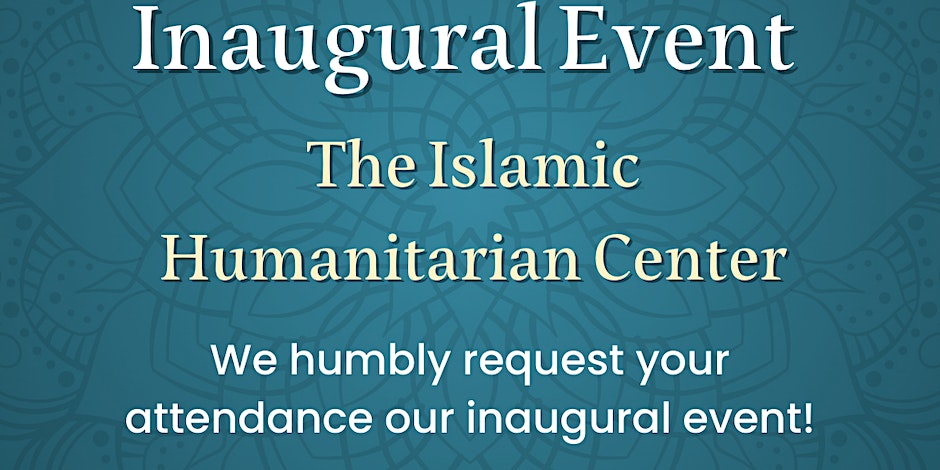The Islamic Humanitarian Center - Inaugural Event

Date/Time
Date(s) - 09/08/2023
1:30 pm - 8:30 pm
Location
Brooke Road Recreation Center
Categories
Cost:
Free USD
Contact Person:
Email:
Website:
https://www.eventbrite.com/e/the-islamic-humanitarian-center-inaugural-event-tickets-696389779577?aff=ebdssbdestsearch
Phone:
Organization:
The Islamic Humanitarian Center – An Ummah Serving Humanity
This is a newly formed organization who’s principal is to serve humanity.
- Charitable Works and Humanitarian Actions: In Islam, acts of charity (known as “sadaqah” or “zakat”) are highly encouraged and are considered a means of purifying one’s wealth and helping those in need. The Quran and Hadiths often highlight the importance of giving to the poor, the orphaned, and the needy. The concept of helping others, irrespective of their social or economic status, is deeply ingrained in Islamic teachings.
- Entering Paradise through Charitable Deeds: The reference you provided, “The first to enter Paradise are those who do charitable works,” aligns with the Islamic belief that acts of charity and compassion hold great rewards in the Hereafter. This encourages Muslims to engage in acts of kindness and generosity to earn spiritual merit.
- Rescue Prisoners, Feed the Hungry, Look After the Ill: The command to “Rescue prisoners, feed the hungry and look after the ill” reflects the broader humanitarian principles promoted in Islam. These directives are in line with various Quranic verses and Hadiths that emphasize the importance of aiding those who are oppressed, hungry, or suffering from illness. Such actions are considered a direct manifestation of faith and a way to please Allah.
- Equality and Obligation for All: Islam teaches that both the wealthy and the less fortunate have a responsibility to support those in need. The practice of giving a portion of one’s wealth (zakat) is obligatory for those who have the means to do so, and it serves as a mechanism for wealth redistribution and social welfare. However, even those with limited resources are encouraged to engage in acts of charity, emphasizing the communal aspect of helping others.
- Exhortatory and Directive Tone in Texts: The Quran and Hadiths often present a combination of exhortatory and directive tones when addressing charitable actions. While some passages encourage believers to engage in charitable deeds through positive reinforcement and promises of reward, others present a clear and direct obligation to provide assistance to those in need.
Overall, the principles of humanitarianism, charity, and helping others are central to the teachings of Islam. Muslims are encouraged to embody these values in their daily lives, striving to make a positive impact on the well-being of individuals and society as a whole.
Come and learn about your community, what we are planning to do, and where you can contribute and do your part.









